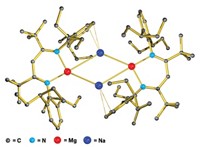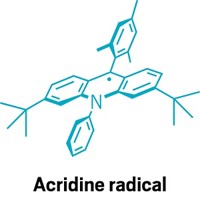Advertisement
Grab your lab coat. Let's get started
Welcome!
Welcome!
Create an account below to get 6 C&EN articles per month, receive newsletters and more - all free.
It seems this is your first time logging in online. Please enter the following information to continue.
As an ACS member you automatically get access to this site. All we need is few more details to create your reading experience.
Not you? Sign in with a different account.
Not you? Sign in with a different account.
ERROR 1
ERROR 1
ERROR 2
ERROR 2
ERROR 2
ERROR 2
ERROR 2
Password and Confirm password must match.
If you have an ACS member number, please enter it here so we can link this account to your membership. (optional)
ERROR 2
ACS values your privacy. By submitting your information, you are gaining access to C&EN and subscribing to our weekly newsletter. We use the information you provide to make your reading experience better, and we will never sell your data to third party members.
Synthesis
Going Anhydrous Modifies TEMPO-H
A water-free version of the popular reagent for supplying hydrogen atoms is more stable and leads to modified reactivity
by Stephen K. Ritter
May 2, 2011
| A version of this story appeared in
Volume 89, Issue 18
In a bid to avoid unwanted side reactions caused by a solvating water molecule in the nitrogen heterocycle TEMPO-H, a team of Canadian-based chemists has devised a synthetic route to an anhydrous version of the popular reagent. To their surprise, the researchers found that the anhydrous version is more stable and exhibits modified reactivity relative to the standard hydrated version (Org. Biomol. Chem., DOI: 10.1039/c0ob00999g). TEMPO-H, which contains the weakest O-H bond observed in any molecule, is a valued source of hydrogen atoms for probing organic, inorganic, and organometallic reactions. It’s the protonated cousin of the stable radical TEMPO, also a widely used reagent in organic synthesis. During the course of their studies on the reactivity of low-valent compounds such as N-heterocyclic carbenes (NHCs) and ketenes with TEMPO-H, Jason D. Masuda and Jason A. C. Clyburne of Saint Mary’s University, in Halifax, Nova Scotia, were finding that the water could result in unwanted reactivity. They hit on the idea of making TEMPO-H under dry conditions, which they did by treating the sodium salt of TEMPO with triethylamine hydrochloride under an inert argon atmosphere in anhydrous solvents. Their work with anhydrous TEMPO-H confirmed that the water can be a confounding factor and led to unusual reactivity such as formation of a rare C∂ ∂ ∂H–O hydrogen bond in an NHC complex.





Join the conversation
Contact the reporter
Submit a Letter to the Editor for publication
Engage with us on Twitter